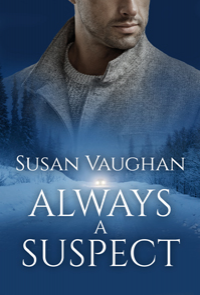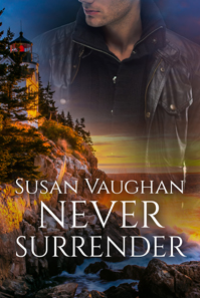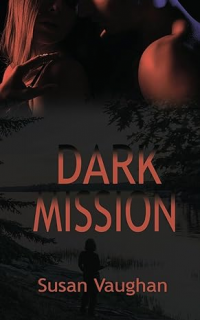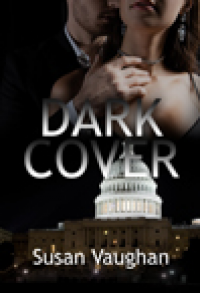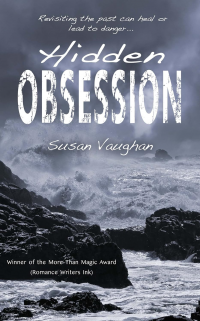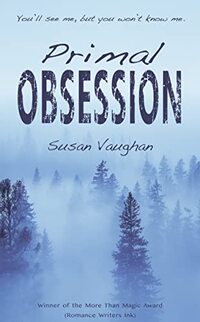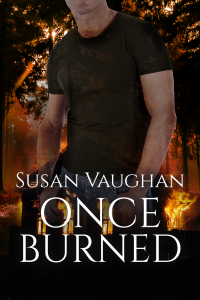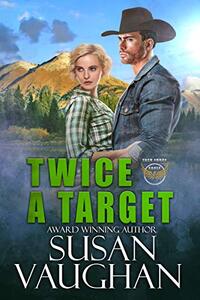Susan Vaughan Interview Published on: 11, Sep 2023
 Who was the first person you shared your first ever story with?
Who was the first person you shared your first ever story with?
I made up stories about my dolls when I was little, but it wasn’t until high school that I began writing stories down. I never showed them to anyone, not even my parents. I’m not sure why, except it was something just for me to think and dream about, not to share. Odd, because now sharing my stories is paramount.
Being a West Virginia native and living in Maine for many years, do these locations play a significant role in your stories? How do you incorporate the sense of place into your narratives?I’ve never set a story in West Virginia. I came up with a few ideas that never went further. However, I think the people of the two states, West Virginia and Maine, have in common a strong sense of place and history. So my background in the Appalachians set me up to incorporate locations as important “characters” in some of my books. The foggy and rockbound coast is an important backdrop in Hidden Obsession, the northern Maine wilderness challenges my characters in Primal Obsession, and the Maine winter helps to set the ominous mood and create some of the plot events in Always a Suspect.
Do you have any favorite authors or books that have influenced your writing style or inspired you throughout your career?Tess Gerritsen has been a favorite author and an influence. It was Tess (she lives in Maine) who invited me to join the Maine Romance Writers. That group and the authors in Romance Writers of America have overall been influential. The novels of Linda Howard and Jayne Ann Krentz have taught me a lot about plotting and character relationships.
Your stories often feature heroes and heroines thrown together in extraordinary circumstances. What draws you to this type of storytelling, and how do you develop the tension and chemistry between your main characters?I’ve always loved mysteries, even from my youth when I read Nancy Drew stories and the adult mysteries my mother liked. When I later began to read romance novels, I gravitated to the ones with mystery, danger, and suspense, which we know today as romantic suspense novels. I love the romance happy ending along with solving the mystery and/or preventing whatever disaster the villain was plotting. Building tension and chemistry between the hero and heroine is the main point of a romantic suspense novel. Developing both is a matter of two steps forward and one back. Each character is flawed and vulnerable, with a strong internal conflict, but with his/her own strengths. It’s my job to write an external plot that calls on their strengths while challenging their flaws and conflicts in a way that eventually brings them together.
As a writer of romantic suspense, you create clever villains to challenge your protagonists. What aspects do you consider when crafting these antagonists, and how do you ensure they are formidable opponents for your heroes and heroines?Creating the perfect villain, or antagonist, for each story is great fun. A stupid villain is no fun, no challenge for the protagonists, so not interesting for readers. For example, the killer in Primal Obsession has gotten away, unidentified, with multiple murders as the story opens. He’s smart, a master of disguise, a chameleon, if you like. In On Deadly Ground, readers know the main villain almost from the beginning. I made him a character to be hated as well as feared, so readers wondered what he’d do next and if my hero and heroine would defeat him. Tension is all!
You have won awards for your writing. Could you share some of the most significant milestones in your writing career, and how have they influenced your approach to storytelling?The very first win a book of mine was the Golden Leaf Award for Best First Book, for Always a Suspect. It was then titled Dangerous Attraction, by Harlequin. That win validated for me that I could write what readers would want to read. Four more books later won or were finalists in contests, including the prestigious Daphne du Maurier Award. Over the years, my skills improved as my stories became more complex, but I still adhere to my principle that the characters’ struggles, the emotional aspect of the story should be front and center. And that the suspense/mystery plot is the external conflict that helps drive the romance.
Romantic suspense is a genre that combines elements of both romance and thriller. How did you strike a balance between the two to keep readers engaged and satisfied through your novel, Primal Obsession?One reviewer said it best: “Add up hunky hero, strong heroine and creepy villain, all heading for a desperate face-off, and you’ve got the perfect romantic suspense.” An injured Major-League batter, Sam needs to prove he can be successful at guiding canoe trips in the Maine wilderness. Annie takes the canoe trip to scatter the ashes of her friend murdered by a serial killer called the Hunter. The two clash at the beginning, but sparks fly along with some humor. The Hunter’s stalking of the canoe party causes them to need to work together. The danger and the romance are inextricably intertwined throughout the story, until the final pages with the happily ever after. It is a romance, after all.
Can you describe your typical writing process? Do you meticulously plan out the plot, or do you prefer to let the story unfold as you write?My writing process is a combination of plotting ahead and letting the story unfold. I begin by creating my characters, including the villains/antagonists—their personalities, flaws, strengths, internal conflicts, backgrounds. I have a general idea of the external plot that will challenge them with a crisis/threat, problem. Sometimes I know how the story will end and plot my way toward that. Sometimes I think I know, but then have to change it at some point. In fact, all of what I plan ahead might change as I develop the chapters and scenes. Before I begin to write scenes, I begin by charting the overall plot and character development with the major turning points. Then I create a sketch of a scene and write the first draft of that scene. Sometimes, I sketch out a few scenes ahead, with just a line or two. Sometimes I scrub the whole thing and start again. Or plot again. Once I really get going, if I’ve created a strong plot and feel I have compelling, interesting characters readers will root for, the initial draft proceeds faster.
As an author, how do you deal with writer’s block or moments when you feel stuck in the creative process? Do you have any strategies for overcoming these challenges?I wouldn’t call it writer’s block exactly, but certainly I have felt stuck with plots or what scene should come next or how a character should behave. When that happens, I return to my character charts for ideas, or I look at my overall plot and the turning points for ideas for to see if I’ve made a wrong turn. Sometimes, I consult friends. Especially in the early years, I belonged to a critique group of other authors of romance fiction. The three or four of us helped each other through plotting or character issues.
How long have you been associated with AllAuthor? How has your experience been?I’ve been with AllAuthor for several months now. I’ve been very pleased at how the company has helped me promote and showcase my books in different ways.
Share Susan Vaughan's interview
Susan Vaughan is a captivating author with an undeniable passion for crafting compelling stories that ignite the flames of romance within the heart of suspense. Hailing from the scenic state of West Virginia, Susan's roots are deeply embedded in the charm of her Appalachian homeland. As an award-winning author of romantic suspense, Susan has masterfully honed her storytelling craft, captivating readers with tales that balance the thrill of danger with the allure of love.
 On Deadly Ground (Devlin Security Force, Protecting Priceless Treasures Book 1)
Genre: Romantic Suspense
On Deadly Ground (Devlin Security Force, Protecting Priceless Treasures Book 1)
Genre: Romantic Suspense
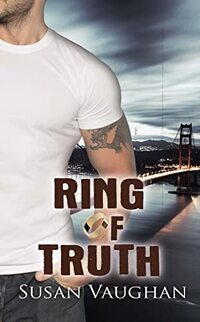 Ring of Truth (Devlin Security Force, Protecting Priceless Treasures Book 2)
Genre: Romantic Suspense
Ring of Truth (Devlin Security Force, Protecting Priceless Treasures Book 2)
Genre: Romantic Suspense
 Cleopatra's Necklace (Devlin Security Force, Protecting Priceless Treasures Book 3)
Genre: Romantic Suspense
Cleopatra's Necklace (Devlin Security Force, Protecting Priceless Treasures Book 3)
Genre: Romantic Suspense
 Genuine Fake (Devlin Security Force, Protecting Priceless Treasures Book 5)
Genre: Romantic Suspense, Paranormal Romance
Genuine Fake (Devlin Security Force, Protecting Priceless Treasures Book 5)
Genre: Romantic Suspense, Paranormal Romance

